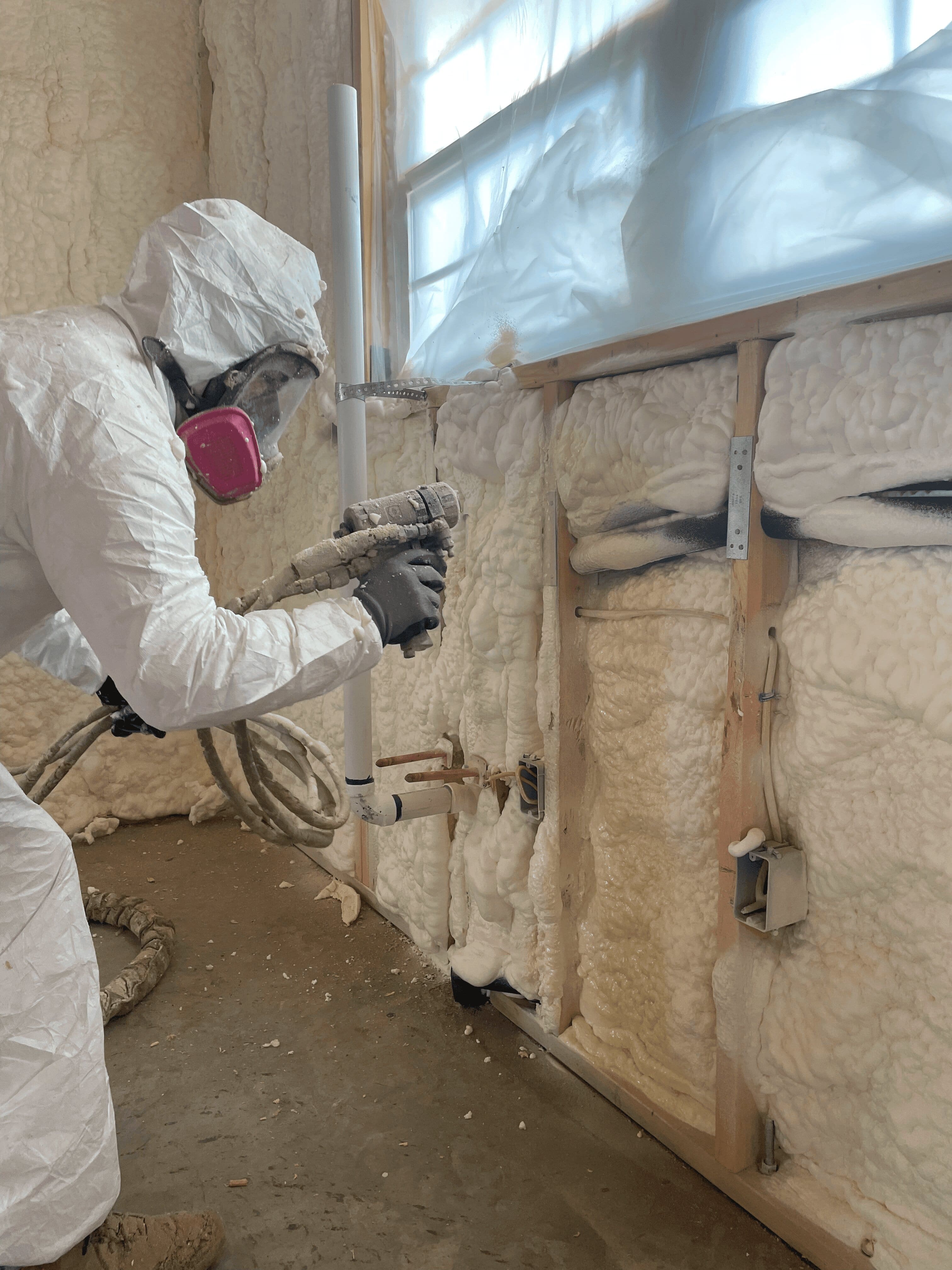Should You Use Spray Foam Insulation For Your Shed?
Sheds Might Protect Your Equipment From Rain And Sun, But Without Proper Insulation, Mold And Moisture Can Still Damage Your Belongings. Here Is Why To Use Spray Foam Insulation For Your Shed.
Sheds might protect your equipment from rain and sun, but without proper insulation, mold and moisture can still damage your belongings. Here is why to use spray foam insulation for your shed.
If you're building a house, insulation is a must. It preserves the heat in your home while shielding it from the harsh elements outside. It also provides other fantastic advantages like the reduction of both noise and moisture buildup in your walls.
Perhaps you’re looking to build another structure, separate from your home – an outdoor shed, perhaps. This begs the question: can you insulate a shed? What if it’s not metal or wood? Can you insulate a plastic shed? Yes! Insulating your shed is just as vital as insulating your house.
Shed kits and custom-built sheds often have thinner ceilings and walls than the rest of your house and are also more exposed to the elements, such as snow, rain, and wind. Therefore, your shed has a tremendous potential to freeze solid in the winter or accumulate moisture and wind damage. Proper insulation is a good idea if you want to keep your shed dry and comfortable, even in the most extreme conditions.
Insulating a shed may be tricky, particularly if you're unsure what insulation material to use for your insulation project. Read below to determine the best options for insulating your outdoor shed.
Why Insulate?
A garden shed often comes without any kind of insulation, which means that it is susceptible to a wide variety of problems. Any room that does not have proper insulation will be frigid during the winter months and sweltering during the summer. The purpose of insulation is to maintain a consistent temperature and guarantee that heat is conserved when required.
In the absence of insulation, the inside of the shed will get wet over time, and as a result, the things you keep there will deteriorate. This is particularly true for upholstered items; if you keep a chair, couch, or even a daybed inside your shed, you absolutely need to insulate in order to protect your items. Any amount of water can potentially cause harm to anything electrical or metal as well.
Condensation will begin to form inside of your shed the moment the temperature there shifts even slightly. Consequently, water will leak onto the objects you have kept, and mold and dampness will form on the timbers. Your shed itself will need to be replaced eventually.
Benefits Of Spray Foam Insulation
When it comes to installing insulation for outdoor sheds, spray foam is among the fastest and most straightforward shed insulation options. Its quick expanding nature allows it to easily reach all the nooks and crannies.
Insulating a shed also has the added advantage of raising your property's resale value. When you insulate a shed, it becomes an extension of your house, giving you extra room for entertaining and storage.
Soundproofing your home is especially important if you want to listen to music or perhaps create your own. Spray foam insulation in your shed will help keep noise levels in your yard and in the nearby homes to a minimum.
Comfortable indoor air is especially critical if you work in your shed on a regular basis. Even if you don't mind the notion of spending your time in a stifling shed, it's a fact that breathing in poorly filtered air can be detrimental to your health.
Toxins and other impurities cannot travel through spray foam insulation because it is impervious to them. Feel free to craft, exercise, woodwork, or simply access the contents of your shed without the threat of outside allergens, dust, and mold.
If you’re thinking of insulating your shed, you might be wondering whether you should insulate the floor as well. To properly insulate your shed, it’s best to insulate all sides. Applying spray foam insulation to your shed and insulating a shed floor will better regulate the temperature, which will help keep your belongings safe. Furthermore, spray foam insulation may be used to improve the comfort of your shed, whether you use it as an office, play area for children, or as a place to practice a particular hobby.
What Is The Best Insulation For A Shed?
Spray foam insulation is simple, convenient, and inexpensive. Spray foam insulation provides a high level of energy efficiency and reduces energy loss, which will decrease your utility cost. Importantly, it does not introduce impurities into the air, so it is safe to be in close proximity to.
How to insulate a shed floor? Unlike fiberglass insulation or mineral wool, spray-in foam insulation is sprayed into the wall, floor, or joist cavities and works best in areas with existing air gaps between studs.
When the foam expands, it fills in any gaps and provides a tight air barrier around the whole wall cavity.
Sealing a shed with expanding foam is excellent for cold climates and keeping your warm or cool air from escaping. It is also an excellent vapor barrier for your shed and effectively insulates acoustically.
Spray foam insulation, whether open-cell spray foam or closed-cell spray foam insulation, is an excellent choice since it is less obtrusive than other kinds of insulation. You don't have to remove the whole wall panel to install it - instead, you may drill several tiny holes and spray it through until it expands to cover the entire wall hollow. Simply hide the holes in the wall, and you're good to go.
Final Thoughts
Sheds can be used for all kinds of household purposes. Store weather-sensitive items, use it as a workshop, recreation space, music room, or artist’s studio.
If you’re considering adding a small heating or cooling system in your outdoor shed, remember that insulation can help you save money on those extra energy bills.
For someone wanting to maintain their shed, insulation is an easy and obvious choice. Protect your investment and your precious items with properly and professionally installed spray foam insulation.
Learn more about spray foam thermal resistance and R-values here.

